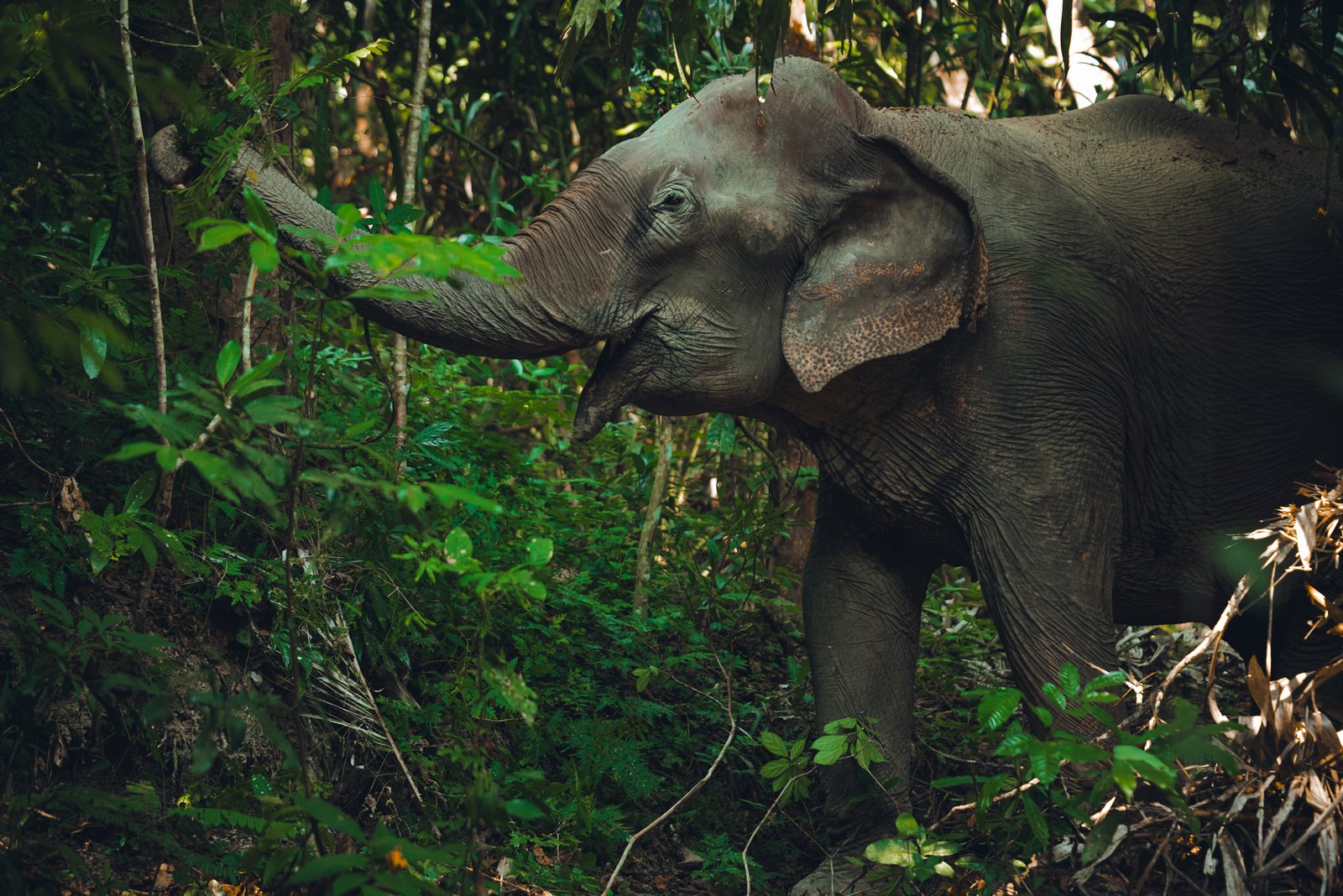
Thailand, celebrated for its unique cultural heritage, is often referred to as the “Land of the White Elephant.” These impressive creatures, known for their grand stature and calm demeanor, hold a special place in the hearts of the Thai people. In Thai culture, elephants are symbols of strength, wisdom, and prosperity, embodying qualities that are deeply valued by the locals. Their presence is woven into the fabric of Thai society, influencing everything from art to daily life.
The connection between elephants and Thai culture is not merely symbolic; it is deeply personal and emotional. Elephants are often seen as family members, and their well-being is a matter of communal concern. This bond is reflected in various cultural expressions, from festivals to religious ceremonies, where elephants play a central role. Their significance transcends mere utility, representing a spiritual connection that has been nurtured over centuries.
Historical and Spiritual Significance
Throughout history, elephants have been integral to Thai folklore, religion, and everyday life. They are revered as sacred beings, believed to possess divine attributes. In Thai belief systems, elephants are associated with the Hindu god Indra, serving as his celestial steeds. Their presence is prominent in religious art, with intricate statues adorning temples and homes, acting as talismans that bestow blessings upon their owners. This deep spiritual connection is reflected in the way elephants are treated with reverence and care, often receiving special ceremonies and offerings.
The spiritual significance of elephants goes beyond religious contexts. They are seen as protectors and symbols of resilience. Their size and loyalty make them fitting representations of qualities cherished by the Thai people. Elephants are believed to bring prosperity and good fortune, and their presence is considered auspicious in various ceremonies and rituals. This belief is so ingrained that many Thai families keep elephant figurines in their homes as a sign of good luck. The reverence for elephants is a testament to their enduring influence on Thai culture and spirituality.

Influence on Literature and Art
Elephants have greatly enriched Thai literature and art. Ancient texts like the Ramakien and Jataka tales often feature elephants as wise advisors and heroic protectors, highlighting their intelligence and compassion. These stories not only entertain but also impart moral lessons, emphasizing the virtues of loyalty and courage. Thai artists have captured the essence of elephants in paintings and carvings, found in temples, palaces, and museums across Thailand. These artworks, with their intricate details and vibrant colors, evoke awe and admiration, showcasing the profound influence of elephants on the country’s artistic expression.
In addition to visual arts, elephants have inspired Thai dancers and performers. Traditional dances incorporate movements that mimic the graceful gait of elephants, paying homage to their significance in Thai culture. These performances serve as a reminder of the deep-rooted connection between humans and elephants, celebrating their role as cultural icons. The rhythmic movements and elaborate costumes create a mesmerizing spectacle that captivates audiences and keeps the cultural heritage alive. Through these artistic expressions, elephants continue to inspire and connect people to their cultural roots.
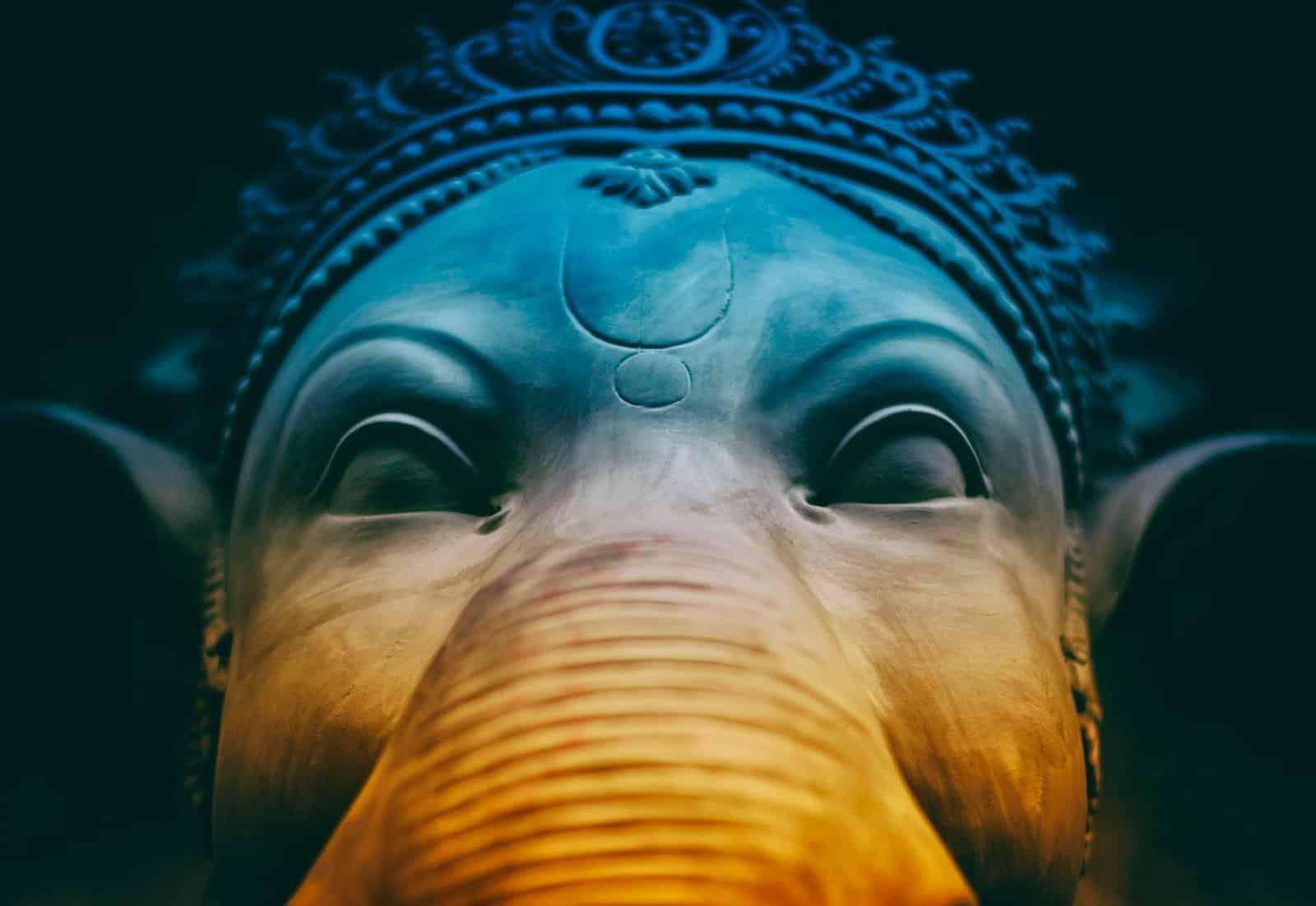
Cultural Performances and Practical Roles
Historically, elephants played a practical role in Thai society, assisting with heavy labor and transportation. Their strength and intelligence made them invaluable in industries like logging and agriculture. Although their role has evolved, elephants continue to be respected for their historical contributions. In the past, they were used to transport goods and people across difficult terrains, showcasing their adaptability and endurance. Their contributions to the development of Thai society are remembered and celebrated in various cultural narratives.
The relationship between elephants and the Thai people extends beyond their practical uses. These creatures were revered as sacred beings, believed to possess spiritual qualities. They were treated with utmost care, receiving royal patronage and dedicated mahouts who formed deep bonds with them. The mahouts, often considered the guardians of elephants, developed a profound understanding of their behavior and needs, ensuring their well-being. The legacy of this relationship continues to influence how elephants are perceived and treated today.
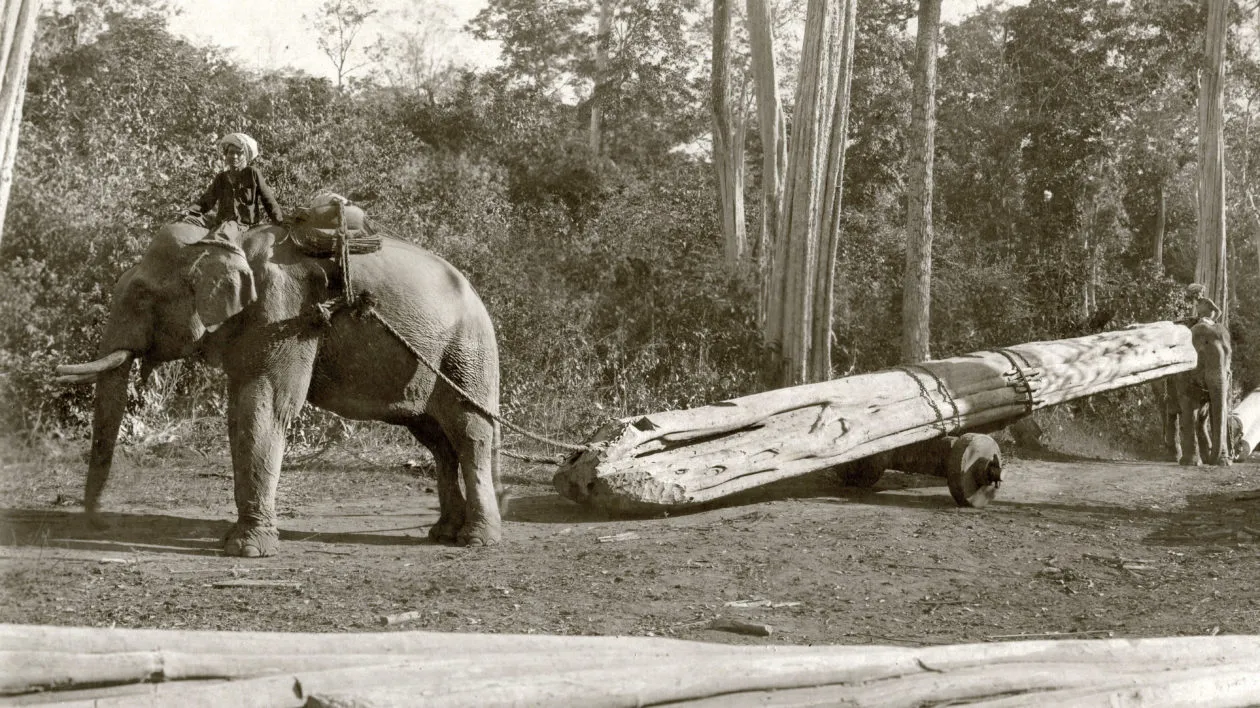
The Ancient Bond with Thailand
For centuries, elephants were vital in Thai society, serving both practical and ceremonial purposes. They were instrumental in warfare, royal processions, and labor tasks. The bond between elephants and the Thai people was so profound that it permeated every aspect of their lives. This connection is evident in the way elephants are depicted in various cultural expressions, from literature to art.
In battles, elephants carried troops and intimidated enemies with their size and strength. Thai warriors rode atop these impressive beasts, commanding respect and admiration. During royal processions, a king atop an elephant symbolized power and authority, uniting the Thai people under a common identity. These grand processions were not only a display of opulence but also served as a means to unite the Thai people under a common identity. The rhythmic sound of drums, the vibrant colors of traditional costumes, and the regal elephants parading through the streets created a sense of unity and pride among the spectators.

Labor and Transportation
Before modern machinery, elephants were essential for heavy labor and transportation. In the dense jungles of Thailand, they were indispensable in the logging industry, navigating treacherous terrains and carrying heavy logs. They also played a crucial role in constructing grand temples and palaces, contributing to Thailand’s architectural heritage. These magnificent creatures transported colossal stones, delicately placing them in precise locations, contributing to the creation of awe-inspiring structures that have withstood the test of time.
The Impact of Industrialization on Elephants
As Thailand embraced industrialization, traditional practices involving elephants dwindled. The demand for timber declined, and machinery replaced elephants in many labor-intensive industries. This shift left a void in the lives of elephants, and their presence in society faced uncertainty. The transition from labor to tourism marked a significant change in how elephants were perceived and utilized. The rapid industrialization brought about new challenges, as the traditional roles of elephants were replaced by modern machinery, leading to a decline in their practical use.
The impact of industrialization was not limited to the economic sphere; it also affected the cultural and social fabric of Thai society. Elephants, once central to daily life, found themselves in a world that no longer required their strength and intelligence. This shift necessitated a reevaluation of their role in society, leading to new opportunities and challenges. The transition from labor to tourism marked a significant change in how elephants were perceived and utilized, as they became symbols of cultural heritage rather than simply laborers.
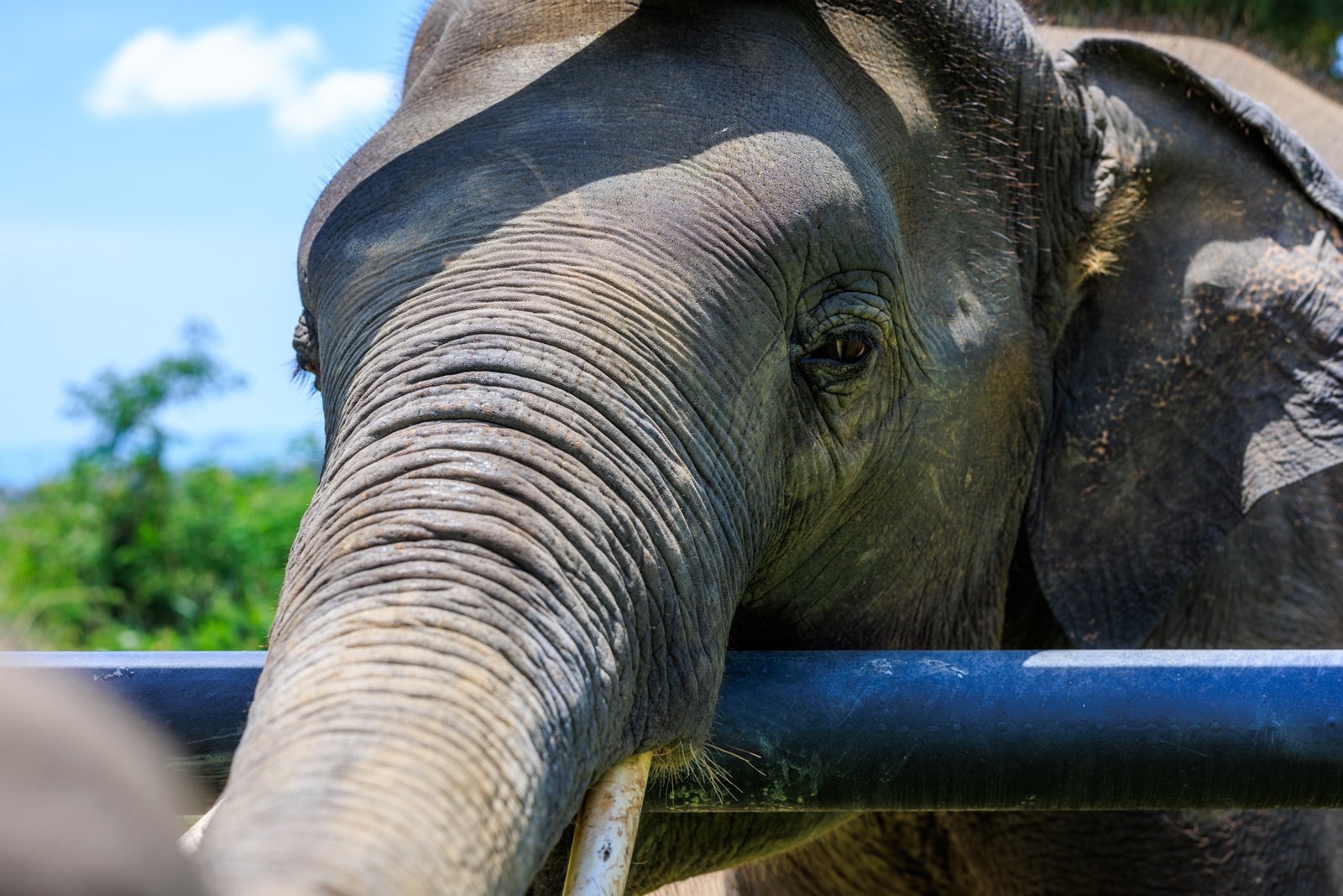
The Transition from Labor to Tourism
As Thailand’s economy evolved, elephants found themselves in a new role within the burgeoning tourism industry. Visitors from around the globe were captivated by these gentle giants, creating a demand for elephant experiences. However, this shift brought about a host of ethical concerns and welfare issues that were often overlooked in the pursuit of profit.
The Reality of Elephant Entertainment
The dark side of elephant tourism soon became apparent. Riding elephants, a popular attraction, places unnatural strain on the animals’ spines, which aren’t designed to carry loads on their backs. The process of training elephants for these rides, known as “crushing,” involves inhumane methods to break the animal’s spirit and ensure compliance. This practice inflicts severe physical and psychological trauma on young elephants.
Similarly, elephant shows featuring painting or other unnatural behaviors may seem entertaining but often mask a grim reality. These performances require intensive training that can involve less than pleasnat methods. Then there is the seemingly innocent act of bathing with elephants in rivers or giving them showers, which can also be stressful for the animals, as it not only disrupts their natural behaviors and routines, but forces them to interact with humans they may not be comfortable around.
Often, the conditions in which many captive elephants are kept are far from ideal. Chained for long hours, even days, deprived of social interaction with their own kind, and many times, malnourished, these intelligent creatures suffer greatly in the name of entertainment.
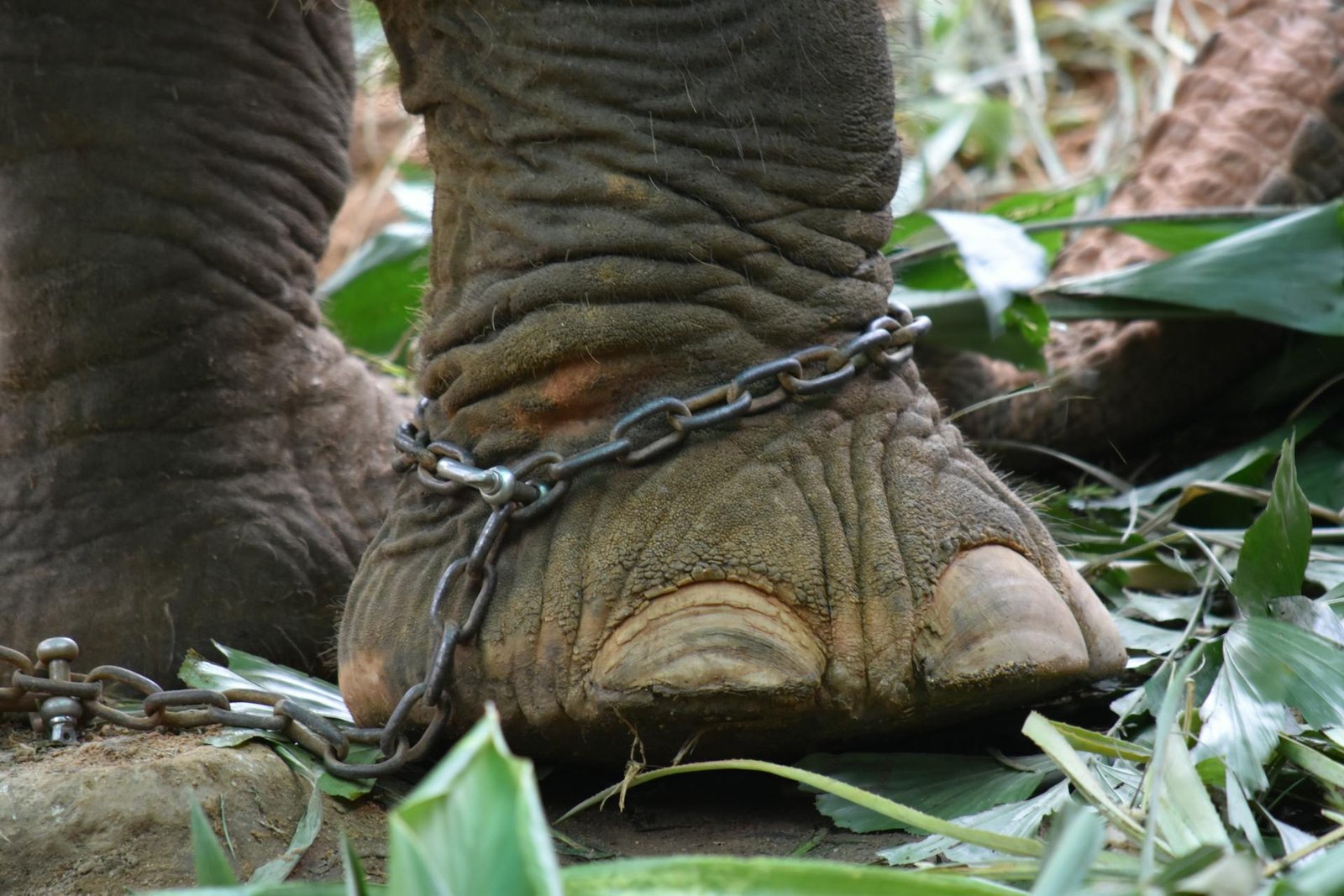
Sanctuaries: A Shift Towards Ethical Practices
In response to these concerning practices, a new wave of elephant sanctuaries has emerged across Thailand. These havens prioritize the well-being and natural behaviors of elephants over tourist entertainment. Instead of rides and shows, visitors are encouraged to observe elephants in more natural settings, learning about their behaviors, social structures, and conservation needs.
Many sanctuaries have implemented strict no-riding policies and have discontinued bathing programs. They focus on providing spacious, enriching environments where elephants can roam, forage, and socialize as they would in the wild. Many sanctuaries, like Phangan Elephant Sanctuary, rescue elephants from exploitative situations, rehabilitating them and giving them a chance to live out their lives in peace.
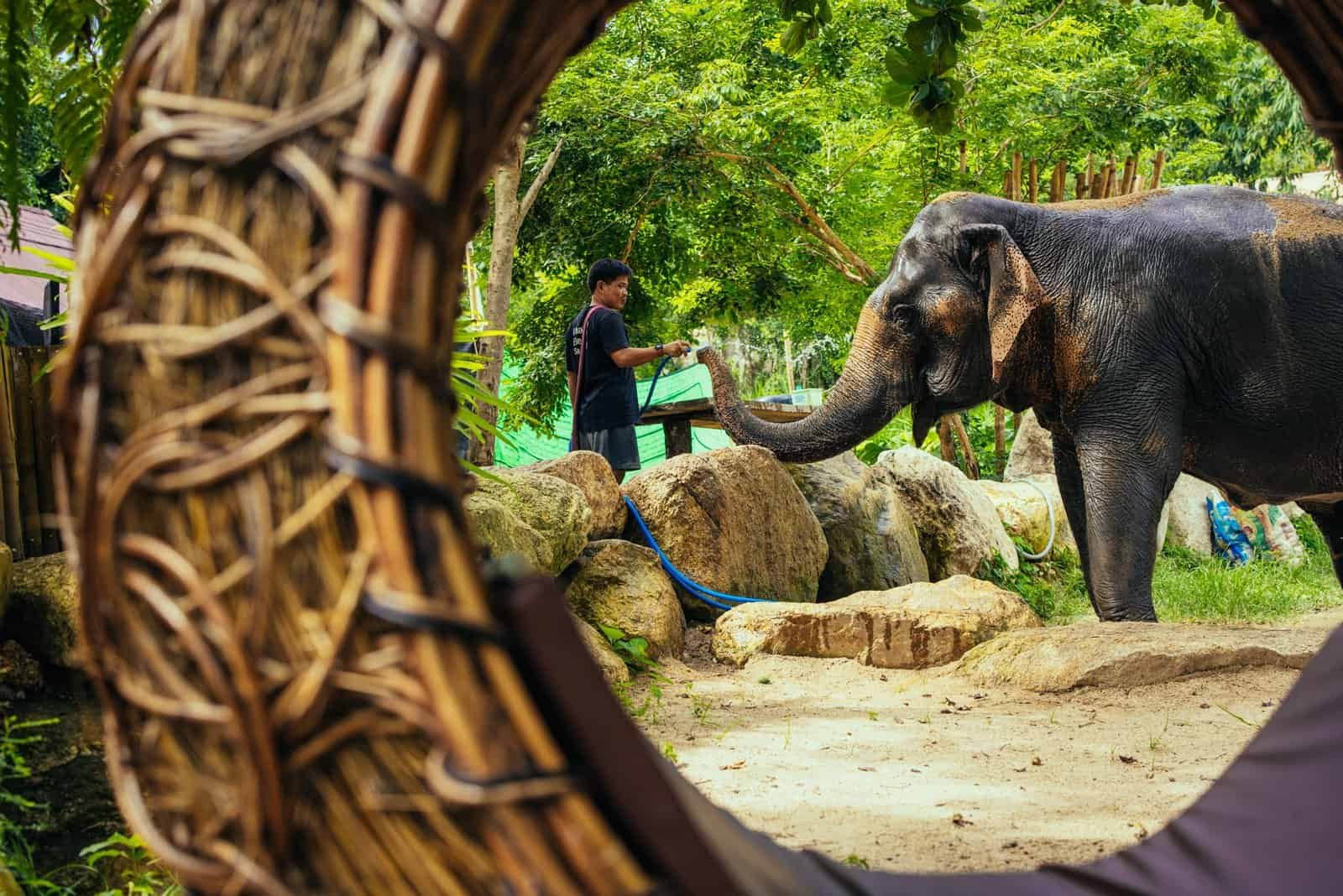
Education and Conservation Efforts
A key aspect of these ethical sanctuaries is their emphasis on education. Visitors are given the opportunity to learn about elephant biology, behavior, and the challenges these animals face in the wild and in captivity. By fostering a deeper understanding of elephants, these sanctuaries aim to create advocates for elephant welfare and conservation.
Many partner with local communities, providing alternative livelihoods for former elephant handlers and educating them about more ethical ways to care for elephants. This approach helps to address the economic concerns that often drive exploitative practices while promoting more sustainable and ethical elephant tourism.
Conservation efforts extend beyond the sanctuary boundaries to protect wild elephant habitats, combat poaching, and mitigate human-elephant conflict. By addressing these broader issues, sanctuaries and conservation groups hope to secure a future for both captive and wild elephant populations in Thailand.
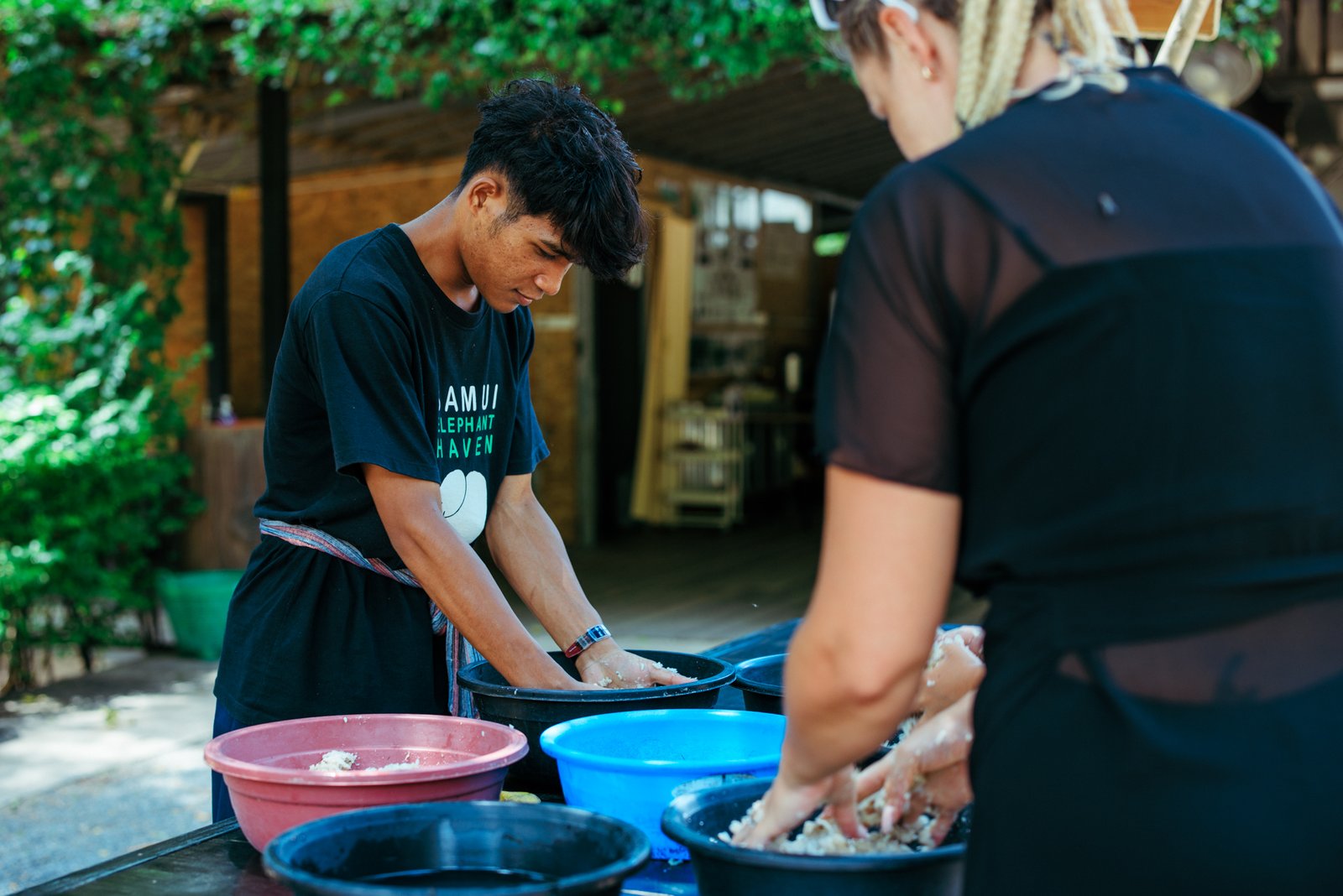
The Road Ahead
While progress has been made, challenges remain. Many tourists are still unaware of the ethical issues surrounding elephant rides and shows. Continued education and awareness campaigns are crucial to shift demand towards more responsible elephant experiences.
The Thai government has taken steps to improve elephant welfare, but stronger regulations and enforcement are needed to phase out exploitative practices entirely. Collaboration between government agencies, conservation organizations, and ethical tourism operators is essential to create a sustainable and humane future for Thailand’s elephants.
As visitors become more conscious of their impact, there’s hope that the elephant tourism industry will continue to evolve. By choosing ethical sanctuaries and supporting conservation efforts, tourists can play a vital role in protecting these magnificent creatures and preserving Thailand’s rich elephant heritage for generations to come.
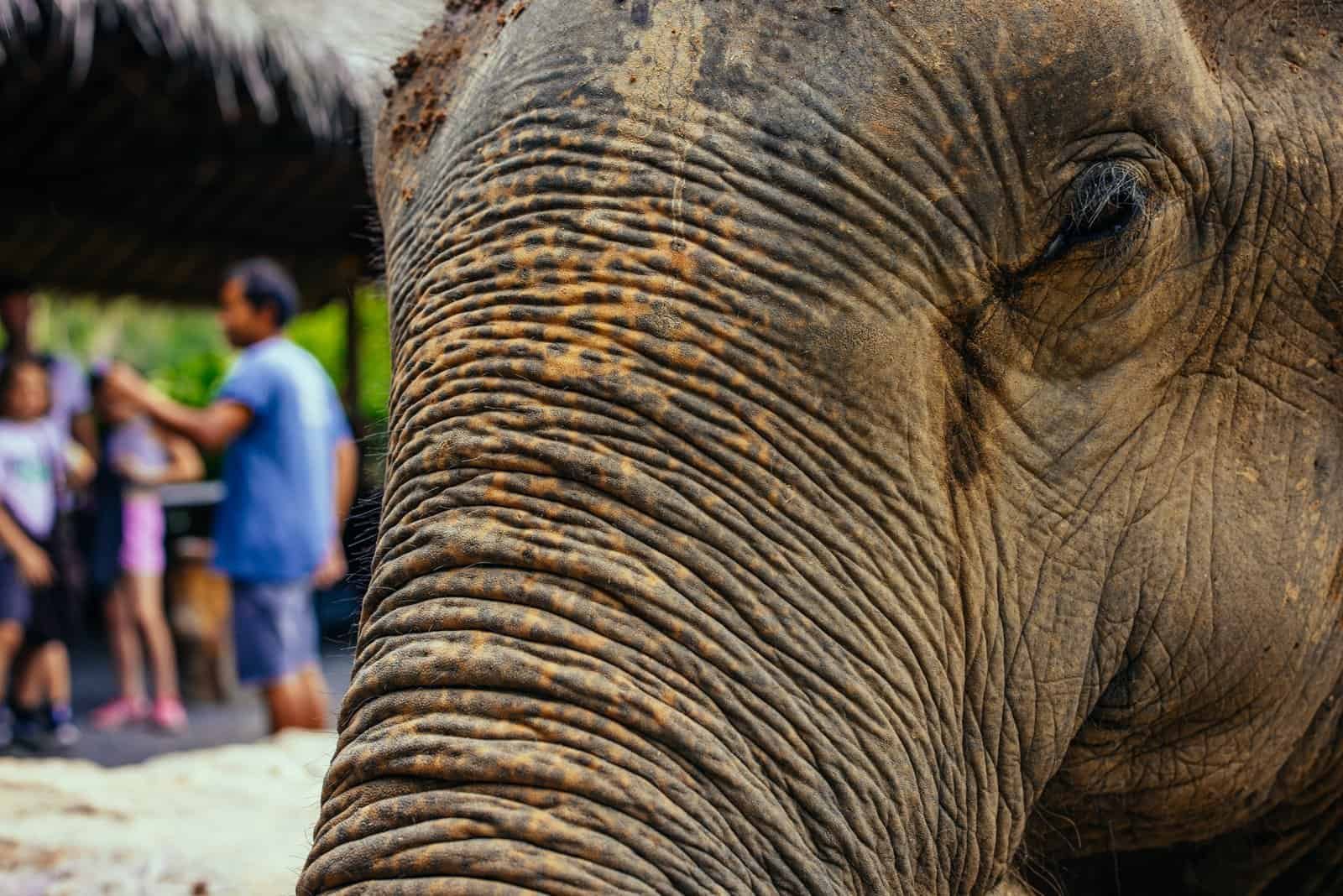
Experience Elephants Ethically
Join us for an unforgettable, ethical elephant experience! At our sanctuary, you’ll witness these magnificent creatures living freely and naturally – no rides, no shows, just elephants being elephants. Your visit supports our mission to protect and care for these gentle giants while providing you with an educational and memorable adventure. Be part of the solution and book your reservation below. Together, we can ensure a brighter future for elephants!

Fabulous article. I’ll spread this far and wide to encourage as many as possible to visit ethical sanctuaries only.